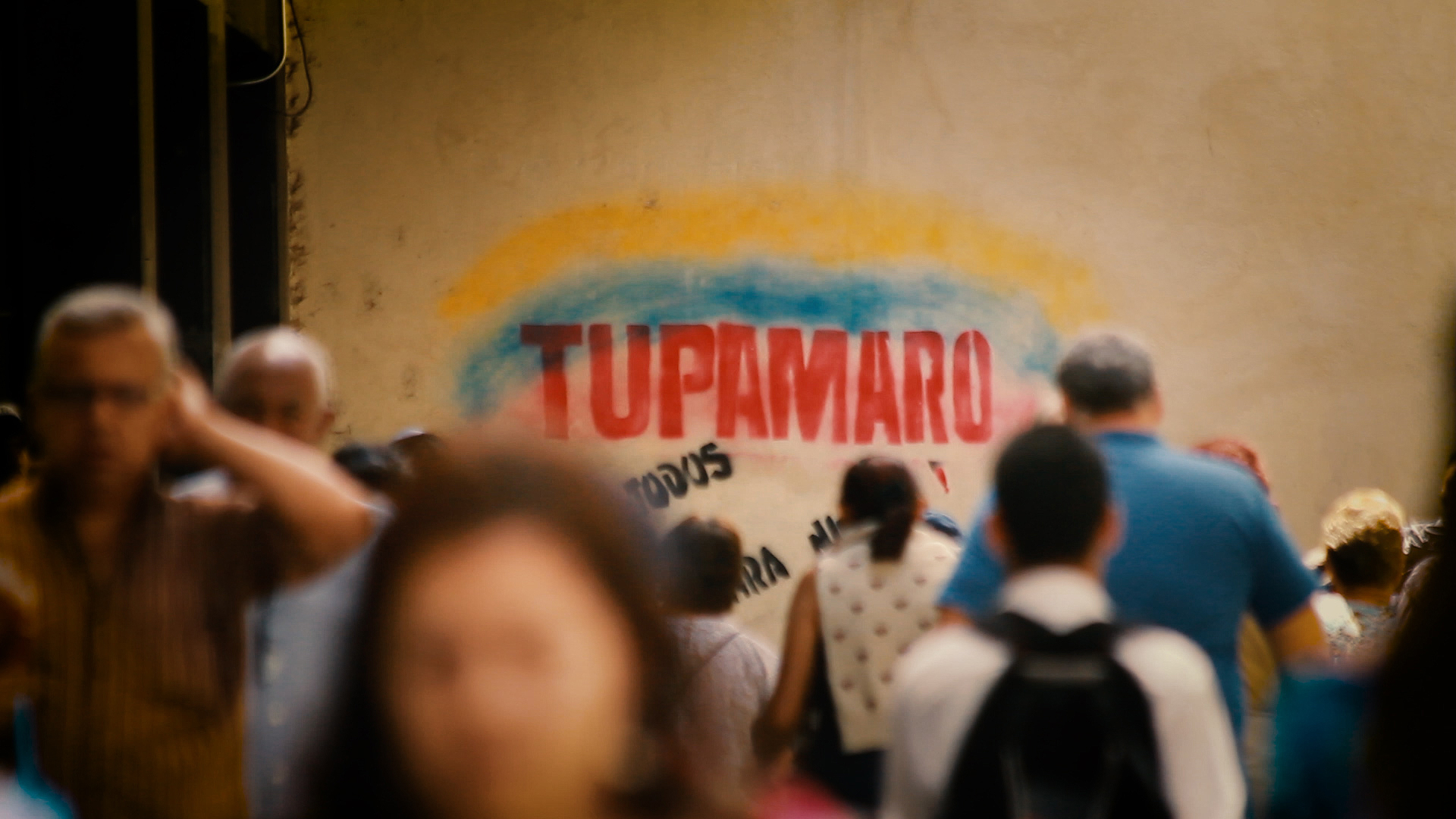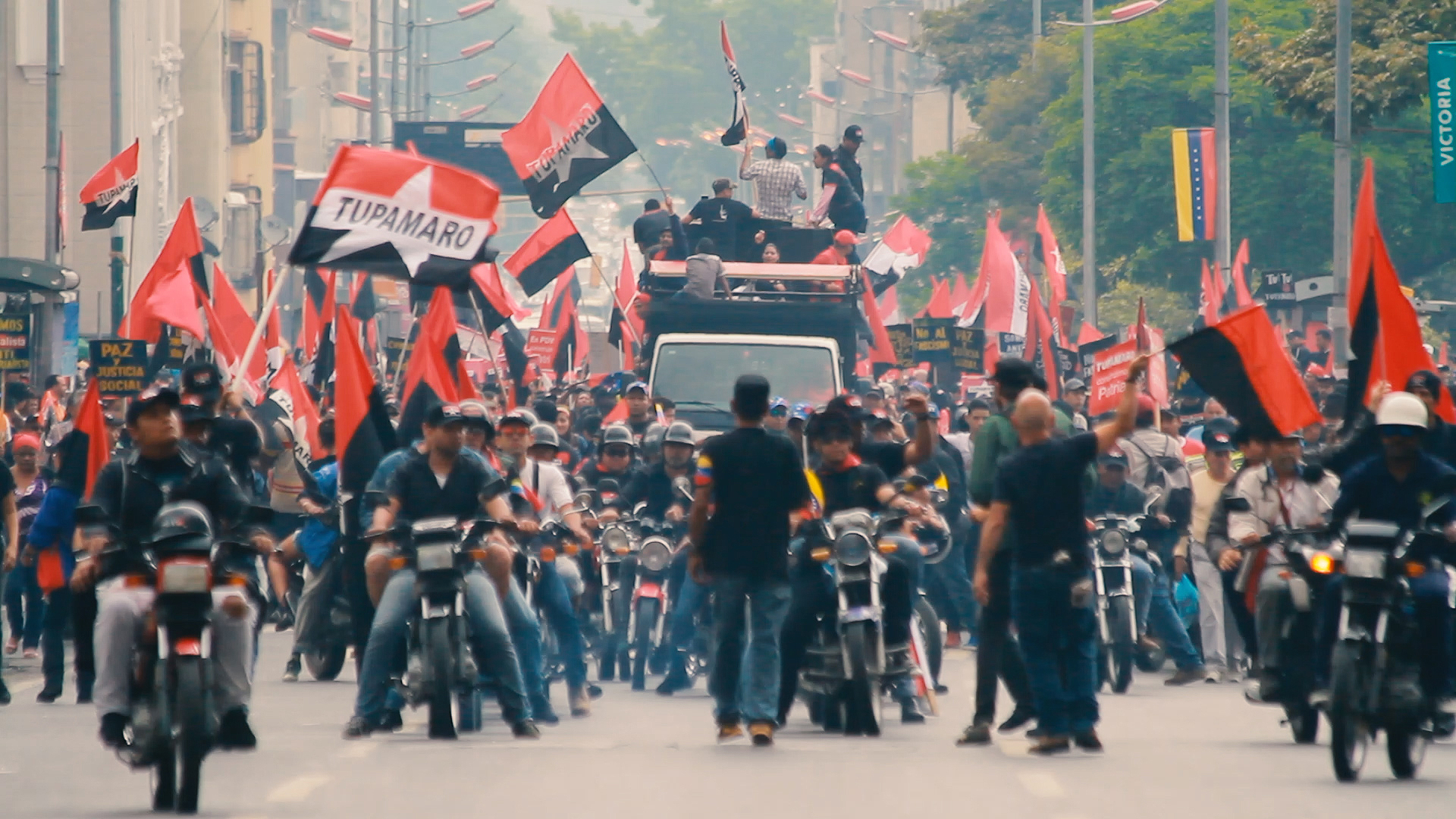The Incredible Story of Alberto ‘Chino’ Carías
A decade in the making, documentary “Tupamaro: Urban Guerrillas” tells the story of Tupamaro leader Chino Carías. It’s also a story about chavismo and the violence behind our recent history.


Photo: Still from “Tupamaro: Urban Guerrillas”
Chronicling the story of Alberto Carías is no easy feat. He’s complex and contradictory: a religious family guy and murderer, a proud public servant with both a rigid moral code and a disregard for the law. “They once told my mother that she was raising a psychopath, because I took out a classmate’s eye with a piece of cardboard when I was seven,” Carías explains with a shy tone and a half-smile in “Tupamaros: Urban Guerrillas”, a documentary directed by journalist Martin Markovits.
The film, which took a decade to complete, is an intimate look at the life of Alberto Chino Carías, the leader of the Tupamaros colectivo, a leftist vigilante group from the western slums of Caracas, where the police aren’t allowed to patrol. Carías was a former guerilla fighter, once accused of robbing banks and murdering several policemen. As an interesting plot twist in his criminal career, his role during the rise of chavismo eventually got him a leadership position in the Caracas Metropolitan Police and a staff position in the National Assembly: he became a part of the system.
The history of Tupamaros in Venezuela goes beyond chavismo, but the group started to grow strong with the rise of Hugo Chávez. Slowly, the Tupamaros colectivo became an institution itself. When Markovits interviewed Carías in 2008 he was captivated by the depth of his character and the way it was linked to the history of violence in Venezuela: “Chino’s story is chavismo’s story” says Marowitz during a phone interview from home, “He was a perfect antihero.”

Still from “Tupamaro: Urban Guerrillas”
In 2010, Markovits and Carlos Corredor started filming with Carías, every day for four months. But it wasn’t enough. Markovits returned in 2013, right before Chávez’s death, Maduro’s electoral triumph, the beginning of the economic crisis, and the 2014 protests. “During the protests, el Chino was interviewed for CNN. He claimed he was the leader of a peaceful organization with no access to weapons. But we had already extensively filmed him carrying guns,” says Markovits.
Carías’ contradictions, half-truths, and his radical political stance are reflected in depth throughout the documentary. The different ways he was perceived by the community, either as a modern-day Robin Hood or as a violent political thug, are probably what defined his radical, conflicting personality.
The film shows an impressive amount of never before seen archive footage from Venezuela’s most conflicting landmarks and unprecedented access into the life of this armed group, exposing its internal dynamics while reflecting on its growing power and role in Venezuelan modern history—which is filled with violence and complex dynamics between politics and society.
Still, the documentary’s biggest achievement is that it isn’t interested in giving a history lesson, rather than explaining how certain historical events developed according to Carías’s participation. “Such is the case of the 2002 events which briefly deposed Chávez. Protesters who claimed for Chavez’s return were organized by colectivos, their role was fundamental in that event,” says Andrew Rosati, co-writer and co-producer of Tupamaros, and former Venezuela correspondent for Bloomberg. It’s easier to narrate this story from one man’s viewpoint, than trying to tackle an entire country’s collapse.

Still from “Tupamaro: Urban Guerrillas”
Rosati also explains how, as a journalist who covered Venezuela for almost eight years, there was a notorious increase in the colectivos’ power, violence, and control over certain communities. “There are many types of colectivos, we can’t say they’re all armed movements. We can’t even say all Tupamaros think alike. There’s been some spilled blood within their own groups as well,” Rosati explains.
Carías is indeed a perfect character to help develop Venezuela’s history of social control. His rise as a guerrilla fighter to urban vigilante to holding a post within the Venezuelan police force makes us wonder: When is violence justified? When is it not? “I believe El Chino felt bad about some of what he did. His need to tell his story was maybe a way to apologize. He even talks about how he’s going to hell.” says Markovits.
Markovits created an emotional, stirring document that manages to show the complexities of a radical movement with respect, caution, and audacity, not without forgetting to expose his very own contradictions as a journalist and as a human being: “Whenever you spend a long time with someone, you grow closer. I could say my relationship with El Chino was close, but I still didn’t want to show him as a modern-day Robin Hood. His group harmed communities, and there’s no way I can deny that,” Markovits confesses., “but being conflicted is also part of what being a filmmaker is about.”
“Tupamaro: Urban Guerrillas” is directed by Martin Andres Markovits, produced by Matt Weinglass, Martin Andres Markovits, Peter Marshall Smith, and Carlos Corredor. Co-produced by Andrew Rosati and Sebastian Kennedy. The film has won multiple awards including Best Picture and Best Foreign Film at the 17th annual Beverly Hills Film Festival. It’ll be available worldwide on Amazon Prime and YouTube starting April 24th.
Caracas Chronicles is 100% reader-supported.
We’ve been able to hang on for 22 years in one of the craziest media landscapes in the world. We’ve seen different media outlets in Venezuela (and abroad) closing shop, something we’re looking to avoid at all costs. Your collaboration goes a long way in helping us weather the storm.
Donate




